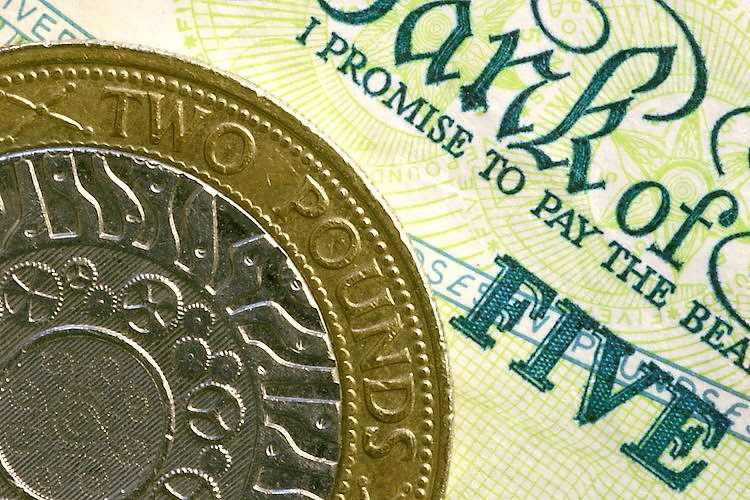Pound Sterling continues declining trend as UK inflation loses stickiness
- Pound Sterling tumbles to near 1.2900 as UK inflation decelerated more than expected in June.
- Monthly headline United Kingdom inflation grew at a negligible pace in June.
- The burden of elevated inflation and higher interest rates by the BoE has spread from households to domestic firms.

The Pound Sterling (GBP) attracts significant offers as the United Kingdom’s June inflation report has turned out much softer than expected. The GBP/USD pair slipped swiftly below the psychological support of 1.3000 after the data release, and it is expected to deliver more weakness. The monthly headline Consumer Price Index (CPI) expanded at a negligible pace of 0.1% in June as households and firms face the burden of higher interest rates from the Bank of England (BoE).
Inflationary pressures in the United Kingdom eased more than what markets expected, supported by declining prices of goods and services at factory gates and aggressively restrictive monetary policy from BoE policymakers. However, investors are still cautious over whether UK Prime Minister Rishi Sunak would meet his promise of halving inflation by year-end ahead of a probable election in 2024.
Daily Digest Market Movers: Pound Sterling exposes to more downside
- Pound Sterling dives as June’s Consumer Price Index has softened more than expected.
- United Kingdom’s Office for National Statistics has reported that monthly headline inflation expanded 0.1% in June, less than the 0.4% expected and the 0.9% advance seen in May.
- On an annual basis, headline CPI decelerated to 7.9% against the consensus of 8.2% and the 8.7% increase registered in May.
- Core inflation, a measure that excludes volatile food and oil prices, softened to 6.9% while investors were anticipating it to rise at a steady pace of 7.1%.
- Labor shortages and high food inflation have been major contributors to stubborn UK inflation.
- Meanwhile, UK’s grocery inflation has eased for a fourth straight month in June to 14.9%, till July 9, posting the steepest decline since its peak in March, Reuters report.
- In addition, a survey from Lloyds Bank showed that food inflation is expected to soften as producers have cut prices for the first time in more than three years as cost pressures have started to relent.
- Synergic effects from soft CPI and PPI are likely to ease the burden on households but are not sufficient to allow the Bank of England to go light on interest rates.
- Markets expect that the BoE will raise interest rates further by 100 basis points (bps) this year, implying an interest rate peak at around 6.5%.
- The burden of high inflation and higher interest rates by the BoE is widening its scope from households to domestic firms. UK’s insolvency services said England and Wales are on track for reporting the highest quarterly number of company insolvencies since early 2009 amid failure in repaying loans.
- The US Dollar Index (DXY) is making efforts to sustain above the psychological resistance of 100.00.
- The USD Index picked strength despite that United States Retail Sales growth failed to match expectations.
- US Retail Sales expanded 0.2% in June, lower than the 0.5% increase expected by markets.
- Softening US inflation, loosening labor market conditions, and moderating retail demand could prompt the Federal Reserve (Fed) to consider raising interest rates further only once this year.
- US Treasury Secretary Janet Yellen said on Tuesday that a cooling labor market is helping to slow inflation. Yellen also said on Monday that the economy is making good progress in returning inflation to 2% and she doesn’t expect the economy to fall into recession.
Technical Analysis: Pound Sterling tests 1.2900
Pound Sterling cracks sharply below the psychological support of 1.3000 as inflationary pressures have slowed down beyond expectations. The Cable is declining towards the 20-day Exponential Moving Average (EMA), which is trading around 1.2860 as a mean-reversion move has been triggered. The asset has continued its three-day losing streak after printing a fresh annual high of 1.3140.
BoE FAQs
What does the Bank of England do and how does it impact the Pound?
The Bank of England (BoE) decides monetary policy for the United Kingdom. Its primary goal is to achieve ‘price stability’, or a steady inflation rate of 2%. Its tool for achieving this is via the adjustment of base lending rates. The BoE sets the rate at which it lends to commercial banks and banks lend to each other, determining the level of interest rates in the economy overall. This also impacts the value of the Pound Sterling (GBP).
How does the Bank of England’s monetary policy influence Sterling?
When inflation is above the Bank of England’s target it responds by raising interest rates, making it more expensive for people and businesses to access credit. This is positive for the Pound Sterling because higher interest rates make the UK a more attractive place for global investors to park their money. When inflation falls below target, it is a sign economic growth is slowing, and the BoE will consider lowering interest rates to cheapen credit in the hope businesses will borrow to invest in growth-generating projects – a negative for the Pound Sterling.
What is Quantitative Easing (QE) and how does it affect the Pound?
In extreme situations, the Bank of England can enact a policy called Quantitative Easing (QE). QE is the process by which the BoE substantially increases the flow of credit in a stuck financial system. QE is a last resort policy when lowering interest rates will not achieve the necessary result. The process of QE involves the BoE printing money to buy assets – usually government or AAA-rated corporate bonds – from banks and other financial institutions. QE usually results in a weaker Pound Sterling.
What is Quantitative tightening (QT) and how does it affect the Pound Sterling?
Quantitative tightening (QT) is the reverse of QE, enacted when the economy is strengthening and inflation starts rising. Whilst in QE the Bank of England (BoE) purchases government and corporate bonds from financial institutions to encourage them to lend; in QT, the BoE stops buying more bonds, and stops reinvesting the principal maturing on the bonds it already holds. It is usually positive for the Pound Sterling.
Author

Sagar Dua
FXStreet
Sagar Dua is associated with the financial markets from his college days. Along with pursuing post-graduation in Commerce in 2014, he started his markets training with chart analysis.

















